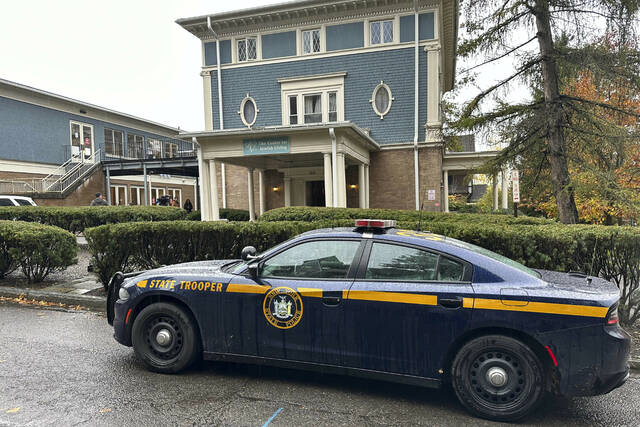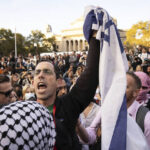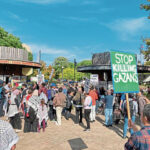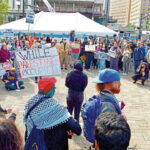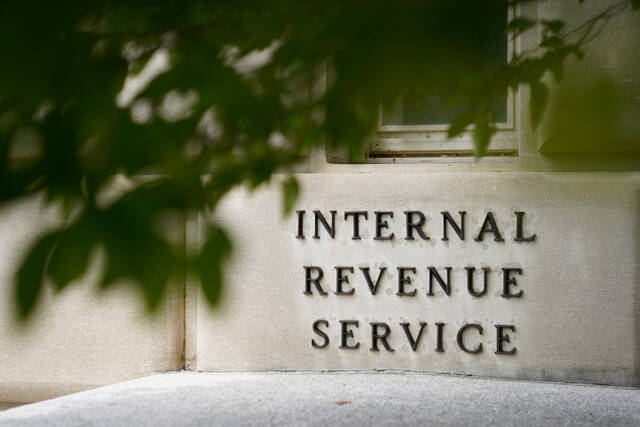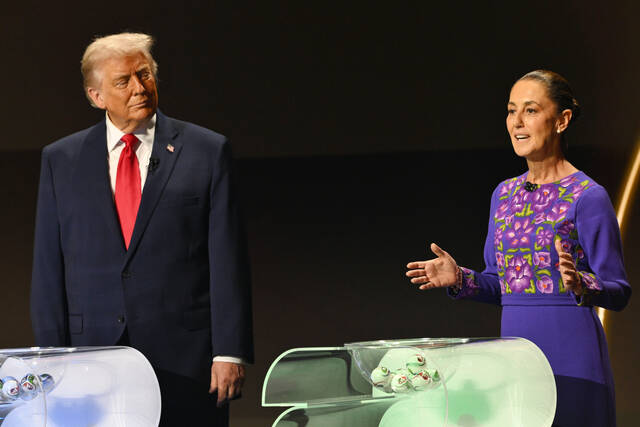University of Pittsburgh senior Eitan Weinkle lost an acquaintance in the Hamas attack at a festival in Israel on Oct. 7 and knows someone else who was taken hostage.
He shoulders that grief and a fear shared by his Jewish peers at Pitt as antisemitic threats on college campuses rise.
“It could be coming to our campus,” said Weinkle, 21, of Squirrel Hill.
Carnegie Mellon University’s Farida Abdelmoneum, who studies machine learning and statistics, has a different fear. She said she was called a “baby killer” for joining others on campus days after the attack to support Palestinians amid the Israeli military’s bombardment of Gaza. She said her perspective garners less sympathy at her university and carries risks for being associated with it.
“People are afraid to speak,” Abdelmoneum, 21, said of those who rally around the Palestinian flag of black, white and green with a red triangle. “They’re always covering their faces because they are scared of what’s going to happen.”
The Israel-Hamas war has inflamed passions among college students nationally. Though less extreme in Pittsburgh than in some other cities, the antisemitism and Islamophobia it spawned have grown more pronounced of late.
And now, the federal government is stepping in.
The U.S. Department of Education has opened investigations into seven colleges and universities — two of them in Pennsylvania — over alleged instances of antisemitism and anti-Muslim acts.
In addition to the University of Pennsylvania in Philadelphia and Lafayette College in Easton, Pa., campuses under scrutiny include Columbia University and The Cooper Union for the Advancement of Science and Art, both in New York City; Cornell University in Ithaca, N.Y.; Wellesley College in Massachusetts; and the University of Tampa. The Department of Education also is investigating Maize Unified School District in Kansas and Hillsborough County Schools in Florida.
The investigations were initiated under the Civil Rights Act of 1964 (Title VI), which prohibits race, color or national origin discrimination, including harassment based on a person’s shared ancestry or ethnic characteristics.
Five of the complaints involve antisemitic harassment, and two involve anti-Muslim harassment, according to department officials. They declined to discuss specifics.
The Biden administration seeks to address “the alarming nationwide rise in reports of antisemitism, anti-Muslim, anti-Arab and other forms of discrimination and harassment,” the department said in a statement announcing the actions.
“Hate has no place in our schools, period. When students are targeted because they are — or are perceived to be — Jewish, Muslim, Arab, Sikh or any other ethnicity or shared ancestry, schools must act to ensure safe and inclusive educational environments where everyone is free to learn,” said U.S. Secretary of Education Miguel Cardona.
Campuses receiving federal funds “have an obligation to provide students a learning setting free from discrimination. Those that violate the law and refuse to address the problems risk forfeiture of funds,” the department said.
At Carnegie Mellon, after an unsanctioned protest this month on campus, President Farnam Jahanian warned against “increasingly toxic” dialogue on campus and on social media.
“Demonstrators who gathered on our campus yesterday — many of them from outside our community — chanted the words ‘from the River to the Sea,’ ” Jahanian stated in a message to campus. “This phrase (referring to the land between the Jordan River and the Mediterranean Sea) is used by the terrorist group Hamas and others as a call for the elimination of Israel and the eradication of the Jewish people.”
“Also deeply concerning, we have heard accounts of members of our Arab and Muslim community being called ‘terrorists,’ ‘degenerates’ and ‘animals,”’ Jahanian continued. “Slurs dehumanize, divide and deeply hurt members of our community.”
They are antithetical to a university community, Jahanian said.
“In no uncertain terms, I condemn speech that advocates the eradication of any group of people,” he said.
Peter Kerwin, a Carnegie Mellon spokesman, did not provide numbers but said antisemitic and anti-Muslim incidents have not increased significantly on campus since Oct. 7. He said campus police have stepped up patrols and university leaders have met with students, faculty and staff about the crisis.
Pitt says it has received about three dozen reports of antisemitic and anti-Muslim incidents, “many of which are still under investigation,” spokesman Jared Stonesifer said. “This includes … social media comments, public statements and vandalism.”
In less than two months, the war has claimed thousands of Israeli and Palestinian lives.
From the start, colleges have struggled to honor a commitment to free speech on their campuses while keeping people safe amid passionate protests and counterprotests.
Nationwide, a number of university leaders delivered messages just after Oct. 7 intended to soothe their campuses, but many attracted a backlash for being too tepid.
A nonprofit created by former Victoria’s Secret billionaire Leslie Wexner and his wife, Abigail, severed ties with Harvard University, alleging the school was “tiptoeing” and “equivocating” over the gruesome attacks by Hamas. They also chided the school for failing to condemn 30-plus student groups at Harvard who laid the blame on Israel.
A similar donor revolt occurred at the University of Pennsylvania, where some were already upset by speakers participating in a Palestine Writes Literature Festival.
Some campuses faced threats of violence, and a number of student groups accused of antisemitism were banned.
Cornell University canceled classes Nov. 3 and police guarded a Jewish center and dining hall after Patrick Dai, 21, a junior, was charged with posting online threats against Jewish people on campus.
At Penn, the FBI and university police responded to a threat.
“A small number of Penn staff members received vile, disturbing antisemitic emails that threatened violence against members of our Jewish community, specifically naming Penn Hillel and Lauder College House,” Penn President Elizabeth Magill said in a campus message.
At Stanford University, an Arab Muslim student standing at a crosswalk was injured in a hit-and-run incident being investigated as a hate crime. The driver is believed to have made eye contact with the victim and said, “(Expletive) you and your people.”
In Pittsburgh, both Jahanian from Carnegie Mellon and Pitt Chancellor Joan Gabel issued statements shortly after Oct. 7, then revisited the topics as their messages drew criticism.
Weinkle, a political science major and president of the Student Coalition for Israel at Pitt, said the initial statement from Gabel and the university expressed sadness over the violence in both Israel and Gaza but lacked any direct mention of Hamas’ attack.
“In trying to play both sides, they played to neither and endangered students, both Jewish and Muslim or Palestinian or Israelis,” he said. “That statement was not adequate.’
In her second statement, Gabel called out Hamas’ “unprecedented terrorist attacks against Israel and innocent civilians,” calling the acts barbaric.
Carnegie Mellon’s Abdelmoneum, a senior from Portland, Ore., said she was happy that Jahanian’s updated statement condemned Hamas and made a distinction between the terror group and the Palestinian people. But there was no condemnation of the Israeli airstrikes and the civilian toll they continue to take.
“If you’re going to be fair, you have to call out both sides,” she said.




